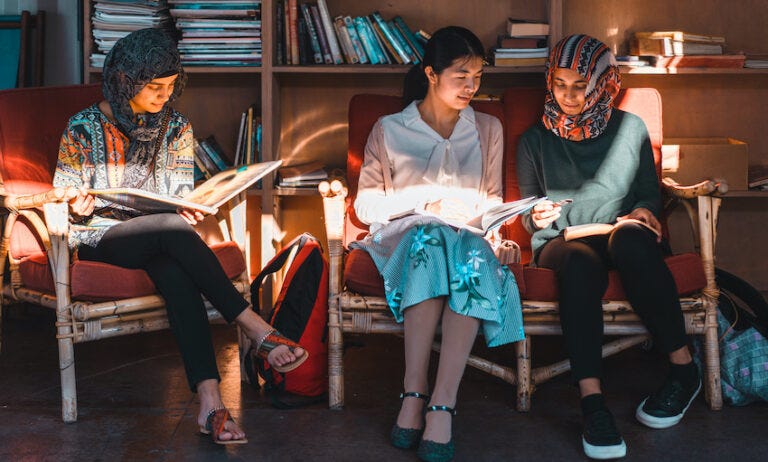Teething issues as school term starts
Even with all the preparations, this was always going to be tricky

Good morning and welcome to The Bulletin for Thursday 16 April, by Alex Braae for The Spinoff. Presented in partnership with Z Energy.
In today’s edition: Term 2 starts with kids at home, media takes spotlight at ERC, and lockdown concern for those in overcrowded housing.

(File photo, Radio NZ)
Going back to school is always hard, but the start of term two has been something else entirely. With schools still closed because of Covid-19, and likely to be for some time to come, the children of the country will all be doing distance learning. As Stuff reports, the need to suddenly be up to speed with a lot of technology has left some parents throwing up their hands in despair. At the absolute earliest, schools may reopen on April 29 for the kids of essential workers – that is an optimistic scenario though, so expect this to be going on for a while.
The scale of this all is pretty enormous, with 800,000 kids now at home for their schooling. For some, it went pretty well – this Radio NZ story talked about a first class meeting over Zoom, and there's no doubt things will improve from here. The education system has been working pretty hard to make this all possible – this Gisborne Herald story goes into some of the preparations, including packs being sent home, and teachers figuring out how to make online learning work. It's all new for them too, after all.
But there is one problem that simply cannot be figured out on the fly, and that is the digital divide. The NZ Herald reports thousands of students still lack devices that would allow them to take part, even with kit being distributed for free by the ministry of education. Tens of thousands more devices have been ordered, but unsurprisingly there's a queue, because every other country is trying to do the same.
And to finish this section, an important message about it all: parents should not be too hard on themselves about trying to get this exactly right. Emily Writes has covered the mixed messages that were sent to parents about the importance of continued schooling, and dire warnings that kids might 'fall behind'. But really, the most important thing that a lot of younger kids can be doing right now is "learning to be a learner and a decent human being." And if all else fails, there’s now many hours of educational programming on the telly during the day to park them up in front of.
If you're a new reader of The Spinoff, you might still be confused about who or what we are. Welcome, it's great to have you here, and to explain how we operate, managing editor Duncan Greive has written this explainer. And if you've been making a contribution in the form of Spinoff Members, we're very grateful for it, and will be using those contributions to produce more high quality writing and journalism.
The media industry was the focus of yesterday's sitting of the Epidemic Response Committee, and the challenges facing the sector were laid bare. Yesterday's live blog contains a report on the testimony given by expert and former NZ Herald editor Gavin Ellis, who told the committee that while there was an immediate cashflow crisis to be addressed, in the longer term structural changes to the industry would be needed. Among the suggestions he made was a change in the tax status of media entities, to reflect that they weren't really profitable investments any more, but still served a public good. We've also gathered up the testimony from the wide range of newsroom bosses who appeared, including our very own Duncan Greive.
Incidentally, on the question of media, I reckon Newshub's Michael Morrah has been doing an outstanding job of demonstrating why an independent media is so important to a functioning country. His latest story is about more PPE being rolled out for workers at Burwood Hospital, where six people have died of Covid-19 so far. Nurses had been complaining that they weren't getting adequate protection, and felt like their calls were falling on deaf ears – until it started getting reported. PPE has been one of those areas in which there has sometimes been a gap between the message from the Ministry, and what those on the ground are saying. Good reporting reveals that gap, and provides the sort of scrutiny that every level of government should welcome.
The current lockdown is having a particularly brutal impact on people who were already living in overcrowded housing. Radio NZ's Eva Corlett has reported on the conditions being experienced by an estimated 400,000 New Zealanders, which are associated with a long list of health conditions and negative social outcomes. As winter approaches, there is clearly a need for much more social housing.
Further to the story about vaccines yesterday that a lot of you were interested in: A trio of scientists have called on the government to start funding domestic research and development for a vaccine against Covid-19, reports Stuff. It will likely be at least 18 months before any vaccine can be rolled out globally, and at this stage it is the clearest possible exit plan from the current physical distancing restrictions that are required. However, the scientists say that if New Zealand doesn’t at least participate in vaccine development, we run the risk of being at the back of the queue in a world full of demand.
When it comes to a decision entirely based on politics, it helps to have a good political columnist to explain it. So it is with PM Jacinda Ardern's call to have ministers and the highest ranking public servants take a 20% pay cut over the next six months, in a move swiftly followed by pledges from National leader Simon Bridges, speaker Trevor Mallard, ACT leader David Seymour and the Green caucus. As the NZ Herald's (paywalled) Claire Trevett puts it, MPs might not be on the breadline, but they do intimately understand job insecurity, so the move was a necessary one to show voters they were sharing in the struggle.
The Māori Party has announced who will lead them into the next election. Stuff reports their co-leadership team will be former MP, mayoral candidate and Waipareira Trust CEO John Tamihere, and Ngati Ruanui iwi CEO Debbie Ngarewa-Packer. They'll both be running in Māori electorates, and challenging sitting Labour MPs for a place in parliament.
Got some feedback about The Bulletin, or anything in the news?
Drop us a line at thebulletin@thespinoff.co.nz

Right now on The Spinoff: Dame Anne Salmond writes about the deep thinking that will have to go into rebuilding the economy and society, and how it must go far beyond simply building new stuff. Privacy commissioner John Edwards writes about the difficult choices coming up regarding contact tracing. Tara Ward reports on what viewership data says about what we're watching during lockdown. Michael Andrew reports on a virtual mental health app featuring John Kirwan, which aims to help people get through. Librarian Rebecca Hastie walks us through the digital offerings that are still available from public libraries. And Duncan Greive interviews Paul Henry (remember that guy?) about his return to the screen, and how his views have changed since being away.
For a feature today, a report on the pushback against what is known in the tech world as "planned obsolescence." That is where technology companies (allegedly – they deny it) build hardware that is designed to break down, so that consumers have to upgrade to a new product instead. As this Guardian piece shows, some users are starting to find ways to instead repair and reuse their devices. Here's an excerpt:
The idea of planned or built-in obsolescence is certainly not new – it was first written about in 1928 by the American marketing pioneer Justus George Frederick. In the words of one subsequent account: “He stated that it was necessary to induce people to buy an ever-increasing variety of things, not in order to use them but to activate commerce and discard them after a short period of time.” The concept even has its own film – in The Man in the White Suit (made in 1951, and recently screened as part of a BBC Two Ealing comedies series sparked by the lockdown), a chemist falls foul of textile producers and trade unions for creating a material that never needs replacing.
Nearly a century on from Frederick’s description, it seems his idea is everywhere, and it sometimes feels as if we are drowning in the detritus of planned obsolescence. The average time an individual keeps a smartphone is reckoned to be between two and three years. Astonishingly, according to EU research, the average lifetime of desktop printers is a mere five hours and four minutes of actual printing time. Ever-changing software spells the demise of fully functioning devices – which is why so many of us have household drawers filled with old ones, left behind – and often bricked – by the same companies that made them.
In sport, a story about the careers that could start to really flourish when international netball starts up again. Stuff's Brendon Egan has profiled five uncapped Silver Ferns, who are being lined up as the next generation of stars. One to watch in particular for fans of any sport is Kate Heffernan, who at the age of 20 has already earned an international cap for the White Ferns cricket team, and has slotted in at the Southern Steel as a replacement for recently-retired legend Wendy Frew.
That's it for The Bulletin. If you want to support the work we do at The Spinoff, please check out our membership programme.




